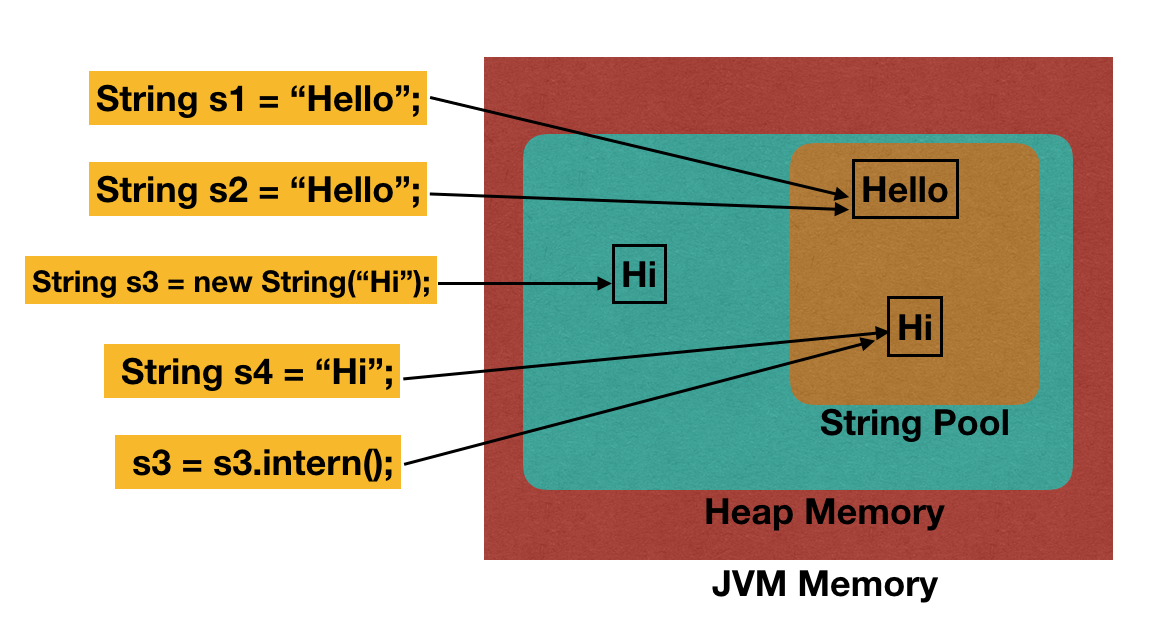Why Are Strings Immutable in Java? Safety And Security and Performance Advantages
Why Are Strings Immutable in Java? Safety And Security and Performance Advantages
Blog Article
What Is Immutable Strings and How It Functions
In the realm of programming, recognizing the principle of immutable strings is extremely important for creating durable and safe applications. Unalterable strings refer to strings that can not be changed after they are created, guaranteeing information integrity and predictability within the code.
The Basics of Immutable Strings
Unalterable strings, as a basic concept in programs, are character series that can not be changed once they are created. This implies that as soon as a string is assigned a worth, that worth can not be changed. In languages like Python and Java, strings are unalterable items, resulting in various effects in regards to memory management and data stability.
Among the essential advantages of unalterable strings is that they provide a complacency in information control. Considering that the web content of an immutable string can not be customized, it guarantees that the initial data continues to be intact, minimizing the risk of unintentional adjustments throughout program implementation (Why are strings immutable in Java?). This residential property likewise streamlines debugging procedures, as developers can trust that when a string is specified, its worth will not be unintentionally altered
When a brand-new string is produced based on an existing one, rather than changing the initial string, the brand-new value is kept individually. Generally, comprehending the basics of immutable strings is important for grasping programming ideas and optimizing code performance.
Benefits of Unalterable Strings
Structure upon the protection and efficiency advantages of immutable strings, their benefits include enhancing code integrity and streamlining simultaneous shows jobs. By being immutable, strings can not be changed after development, which removes the risk of unintended adjustments in the information they keep. This intrinsic immutability makes certain that when a string is developed, its value remains consistent throughout the program's implementation, lowering the opportunities of bugs triggered by unforeseen alterations.
Furthermore, unalterable strings add to code integrity by making it easier to reason about the state of a program. Since strings can not be altered, designers can rely on that a string will constantly hold the same worth, streamlining debugging and upkeep efforts. This predictability leads to much more steady and reputable codebases.

Implementation in Shows Languages
Within numerous shows languages, the unification of immutable strings is a basic aspect that influences how information is dealt with and manipulated within code frameworks. The execution of unalterable strings varies throughout various shows languages, with each language providing its own devices to sustain this idea.

On the other hand, languages like C and C++ do not have integrated support for unalterable strings. Designers in these languages have to manually execute immutability by implementing guidelines within their code to avoid direct modifications to string objects.
Finest Practices for Functioning With Unalterable Strings
When dealing with immutable strings in programs languages like Java and Python, sticking to best methods ensures protected and reliable data adjustment. One of the vital best practices is to utilize StringBuilder or StringBuffer rather than straight manipulating strings, particularly when managing websites substantial concatenation operations. These courses give mutable alternatives for string adjustment, assisting to stay clear of unnecessary memory allocations and boosting efficiency.
An additional best practice is to make use of string interpolation or format works given by the language as opposed to manual concatenation. This not only improves readability however also help in stopping typical mistakes such as unintentional string adjustments. Additionally, when collaborating with sensitive information such as passwords or API keys, it is essential to stay clear of saving them as plain text in unalterable strings. Utilizing secure storage devices like char ranges or specialized collections for dealing with delicate info aids minimize safety and security dangers connected with unalterable strings.
Real-world Applications and Examples
Discovering sensible implementations of immutable strings in different industries discloses their considerable effect on data honesty and system integrity. In the medical care market, immutable strings play a vital function in ensuring the safety and privacy of patient data. By avoiding unapproved alterations to delicate info such as medical records and prescriptions, unalterable strings help preserve compliance with stringent personal privacy regulations like HIPAA.
Monetary institutions additionally take advantage of the immutable nature of strings to boost the safety and security of consumer information and transaction documents. Unalterable strings help protect against fraud and unapproved modifications to economic details, offering a robust protection against cyber hazards and guaranteeing the depend on and self-confidence of customers.

Final Thought
Finally, unalterable strings are repaired and stable series of personalities that use benefits such click this site as thread security and boosted performance in programs. They are applied in numerous programming languages to make sure data stability and safety. Best techniques for dealing with unalterable strings include staying clear of straight adjustments more and using approaches that return brand-new string things. Real-world applications of unalterable strings consist of data security, caching, and string control tasks.
Immutable strings refer to strings that can not be altered after they are created, ensuring information honesty and predictability within the code. When a brand-new string is created based on an existing one, instead than customizing the original string, the brand-new value is saved individually.In languages like Java and Python, strings are unalterable by default, implying that once a string things is produced, its value can not be altered - Why are strings immutable in Java?. Finest techniques for working with immutable strings include avoiding direct modifications and making use of methods that return new string items. Real-world applications of immutable strings include data encryption, caching, and string control tasks
Report this page